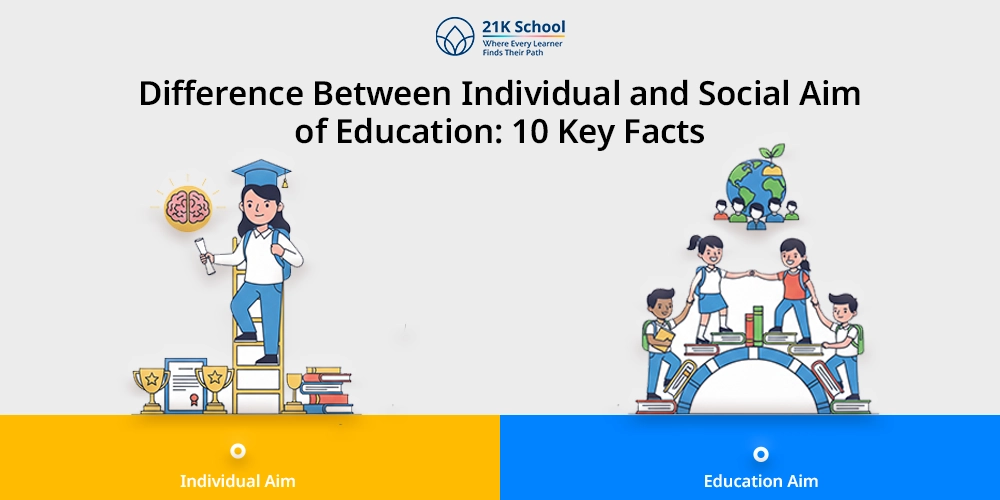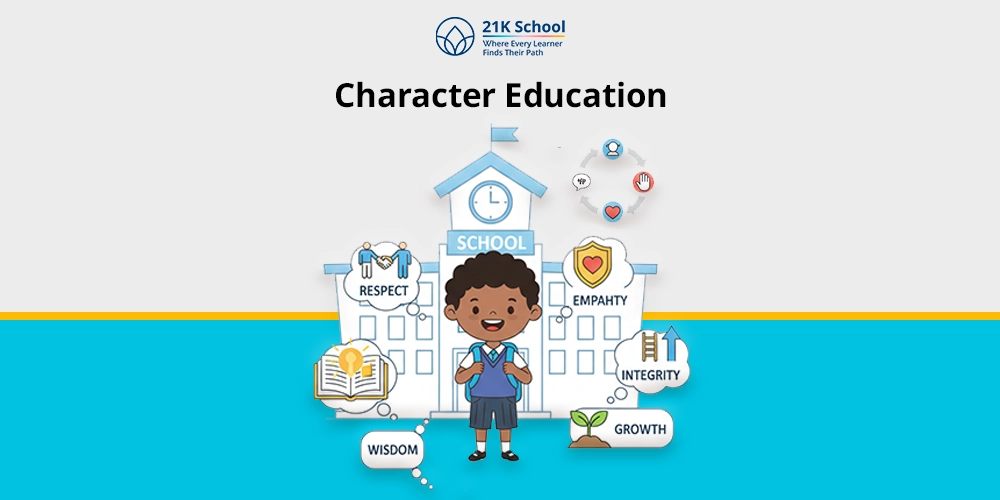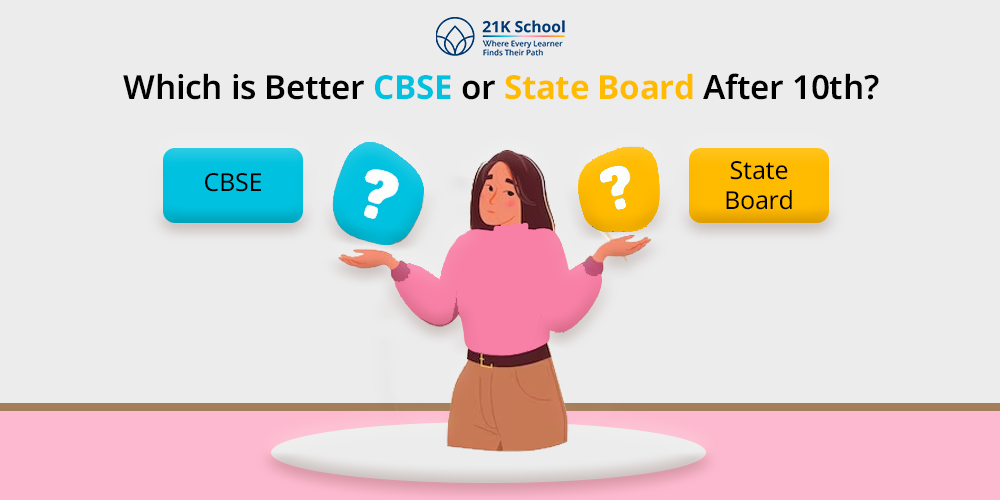
Are you also feeling stuck like any other Indian student about which is better CBSE or State board after 10th?
We understand your indecision, and to ease this question for you to answer, this article will compare deeply between CBSE and state boards to find which suits you best.
CBSE and state boards are the two major boards preferred by students in India and with which parents are known to. Both the boards are serving different populations of society and fulfilling their needs of education.
Let’s get to know which boards give your children better benefits of CBSE or state boards when you are firm to prepare your children for the future after class 10th.
Contents
Which is Better: CBSE or State Board After 10th?
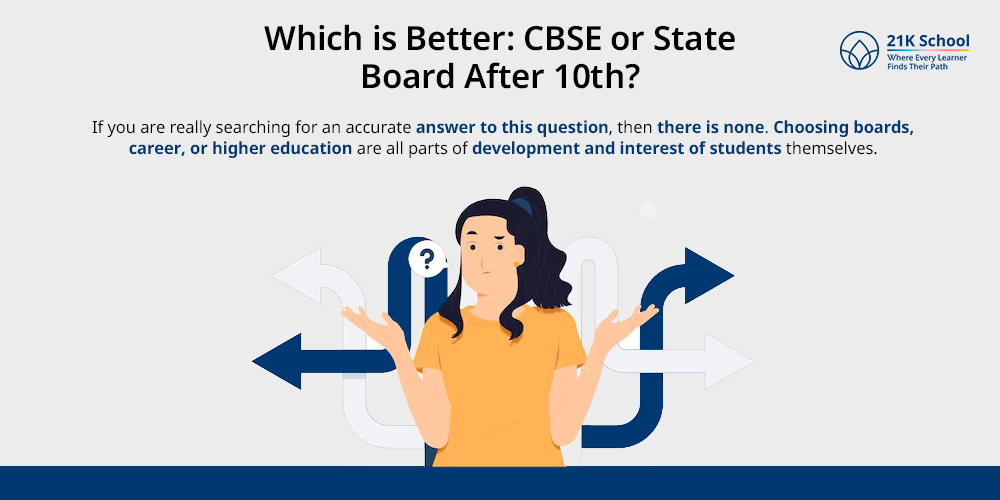
If you are really searching for an accurate answer to this question, then there is none. Choosing boards, career, or higher education are all parts of development and interest of students themselves.
For example, if a learner is choosing CBSE board after 120th, he might get the better preparation strategy and resources for appearing for national competitions, or higher education.
And similarly when a student chooses state boards as his educational board, he can excel as well, but in the local state government jobs. He might also get preference when applying for colleges of his own state, which is favourable for him.
Also read: Is NIOS certificate valid for government jobs .
There is nothing wrong with choosing any one. You just have to be clear of your wants and desires.
You can read through the following table and pointers to understand these needs and family considerations all along your journey.
| Criteria | CBSE | State Board |
| Curriculum & Syllabus | National level, uniform across India | State-specific, varied by region |
| Teaching Methodology | Focus on conceptual understanding | Primarily focused on rote learning and local context but now shifting towards conceptualization in states like Maharashtra. |
| Examination Pattern | Objective + Subjective exams | Mostly subjective exams |
| Recognition & Transferability | Highly recognized across India & abroad | Recognized regionally |
| Competitive Exams | Ideal for national exams like JEE, NEET | May require extra coaching for national exams |
| Career Prospects | Good for all fields, particularly national jobs | Best for local/regional jobs |
| Cost | Generally higher in private schools | Lower in government schools |
1. Curriculum & Syllabus Differences
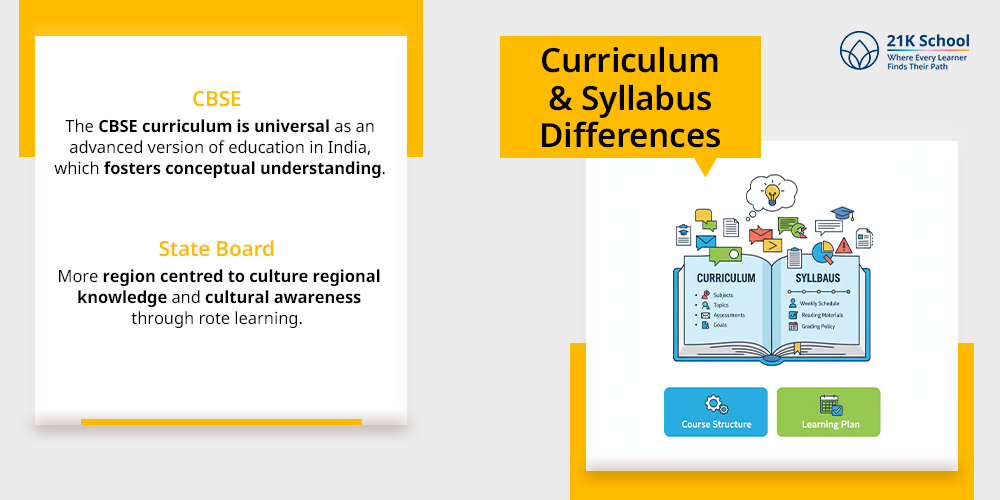
CBSE board: The CBSE curriculum is universal as an advanced version of education in India, which fosters conceptual understanding. This established syllabus according to the curriculum claims foundational knowledge for even competitive exams like NEET and JEE, and advisable for students going to pursue higher education across the globe.
State board: Curriculum designed under state boards are more region centred to culture regional knowledge and cultural awareness through rote learning . Students who have ambitions of working in their native states for its development can get better assistance through this curriculum. Many state boards like Maharashtra’s regional board are now shifting towards conceptualization and removing rote learning.
2. Teaching Methodology Comparison
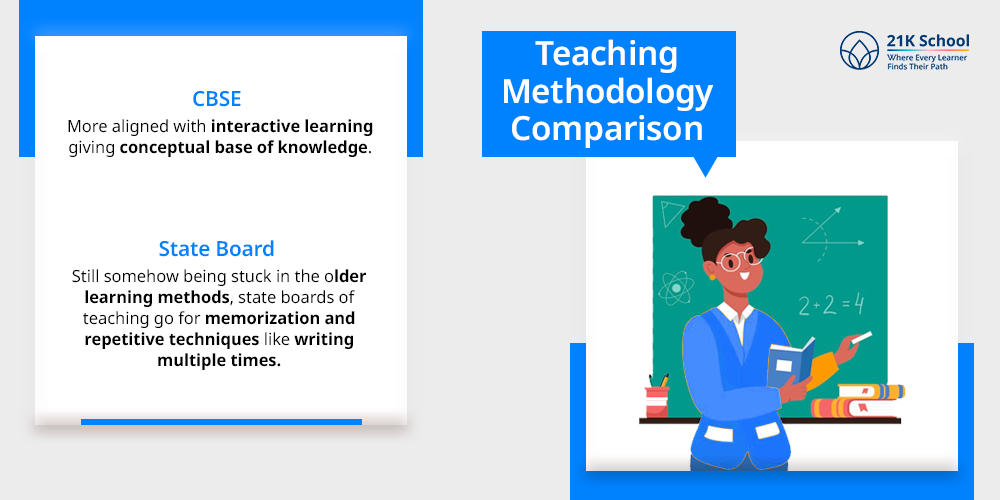
CBSE board: Teaching methods opted as in CBSE educational boards are more aligned with interactive learning giving conceptual base of knowledge. You would find that teachers in these curricula are regularly motivated to choose inclusive options or activity-based learning for diverse student needs.
State board: Still somehow being stuck in the older learning methods , state boards of teaching go for memorization and repetitive techniques like writing multiple times. The jobs available for students having these board’s education are local and in regional backgrounds.
3. Examination Patterns & Grading Systems
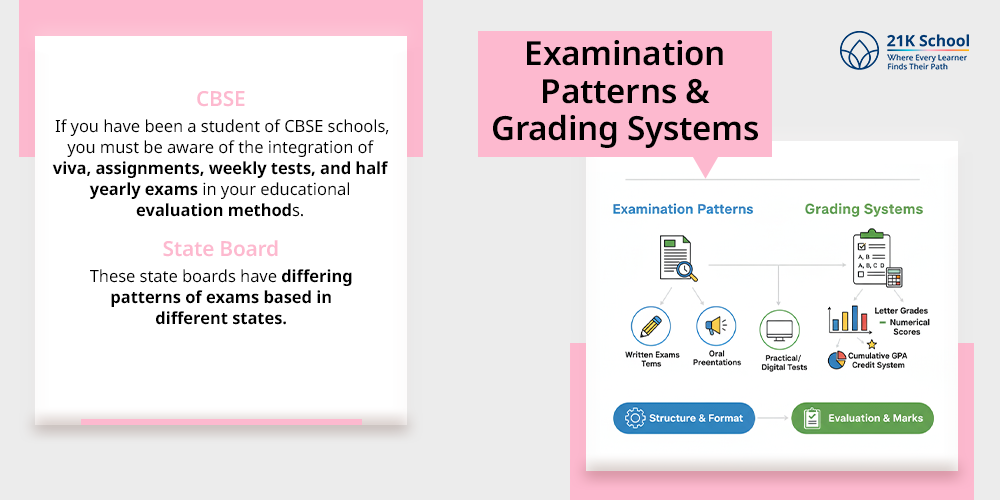
CBSE board: If you have been a student of CBSE schools, you must be aware of the integration of viva, assignments, weekly tests, and half yearly exams in your educational evaluation methods. The report cards were prepared to show grades and individual marks in each subject including practicals too, and then final substitution of average percentage.
State board: These state boards have differing patterns of exams based in different states.
4. Recognition & Transferability
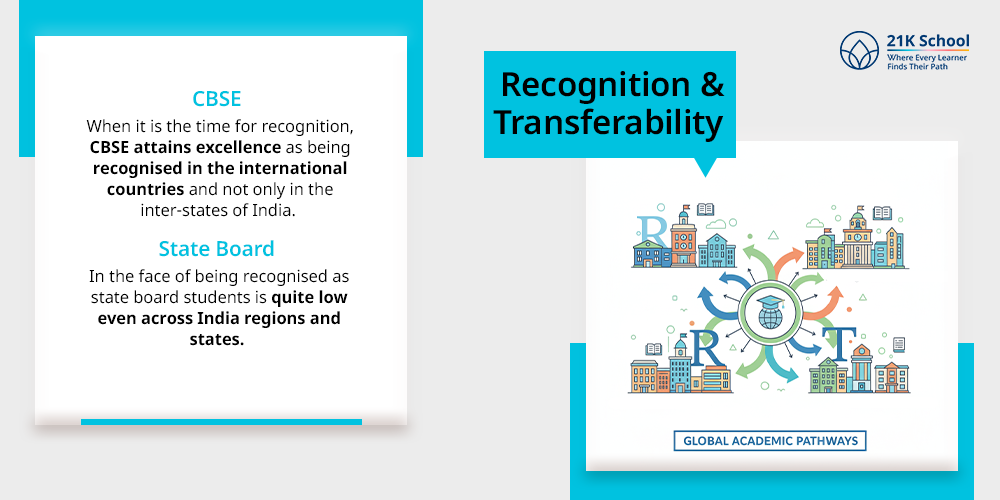
CBSE board: When it is the time for recognition, CBSE attains excellence as being recognised in the international countries and not only in the inter-states of India. It is also seen that CBSE students don’t mostly switch boards after 10th, but it is convenient to come from other boards to CBSE.
State board: In the face of being recognised as state board students is quite low even across India regions and states. The transfer situation is common for having benefits of state board switching to CBSE
.
5. For Competitive Exams
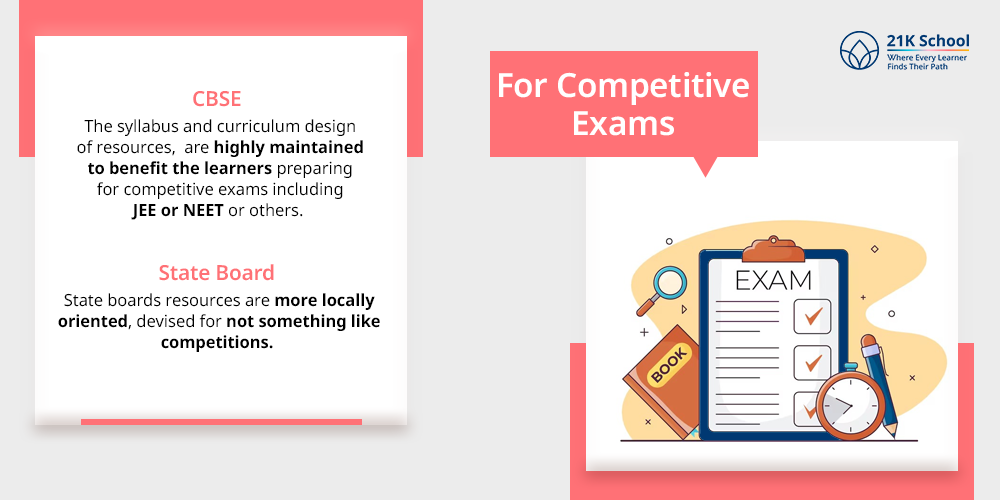
CBSE board: The syllabus and curriculum design of resources utilized in teaching students of CBSE schools are highly maintained to benefit the learners preparing for competitive exams including JEE or NEET or others. These are subjected to make students a master in critical thinking by emphasizing maths and science lessons.
State board: For the time we have known, state boards resources are more locally oriented, devised for not something like competitions.
6. Career Prospects
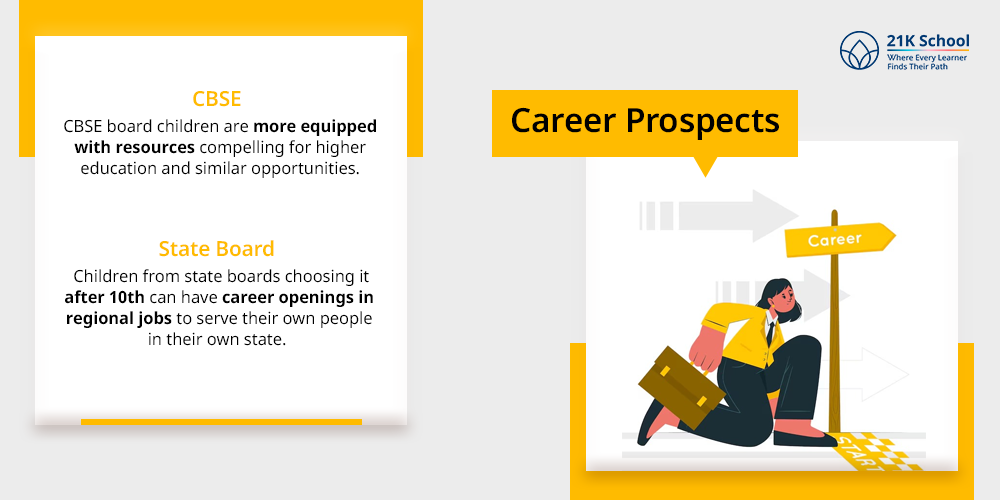
CBSE board: Though it cannot be defined taking which board can make you surely successful or unlock future jobs in the 21st century , CBSE board children are more equipped with resources compelling for higher education and similar opportunities.
State board: Children from state boards choosing it after 10th can have career openings in regional jobs to serve their own people in their own state.
7. College Admissions
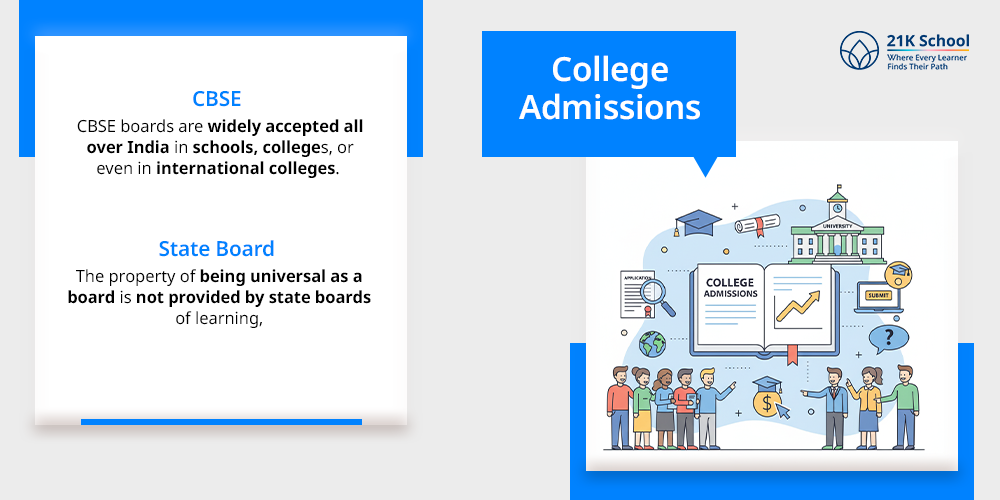
CBSE board: CBSE boards are widely accepted all over India in schools, colleges, or even in international colleges. Students with their degrees in CBSE don’t have much to worry about.
State board: The property of being universal as a board is not provided by state boards of learning, which says the reason for not being accepted in colleges outside your own state.
8. Cost Comparison
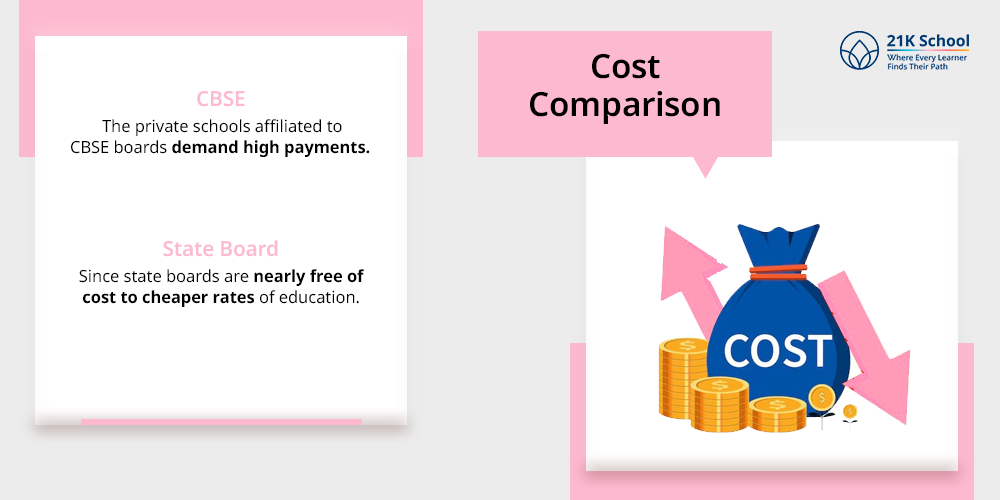
CBSE board: The private schools affiliated to CBSE boards demand high payments and fees from children and parents even when NCERT books are quite affordable. Other charges included in the costs of education are for other facilities like extracurricular activities , trips, workshops, labs, transport, etc.
State board: Since state boards are nearly free of cost to cheaper rates of education, the quality of education is often seen to be affected poorly.
How to Make the Right Choice Between CBSE or State Board After 10th?
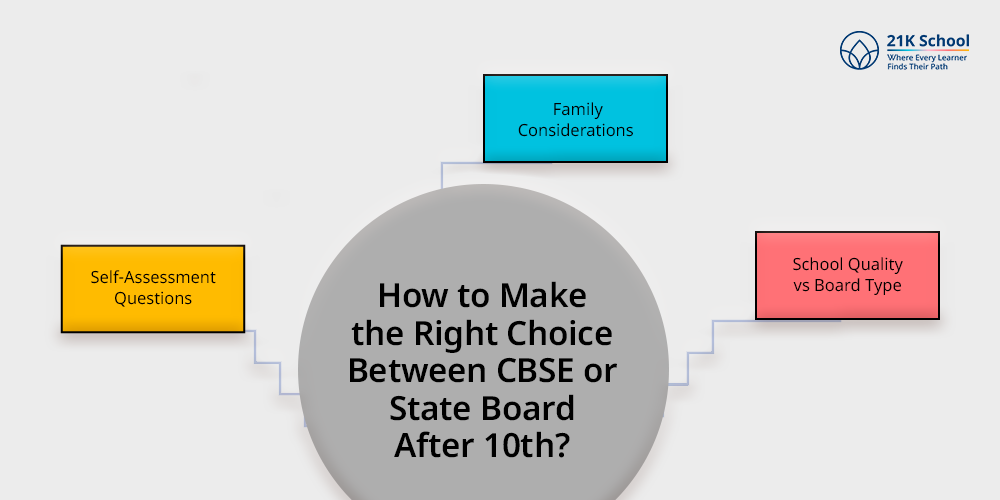
To be really precise, I don’t think anyone can stick with a single board to be apt for someone who is not aware of his expectations from himself, his career and 21st century skills he would like to practice.
For having a conviction of what needs to be considered before choosing one of CBSE or state boards after class 10th, you need to ask some series of questions and discuss with your parents.
1. Self-Assessment Questions
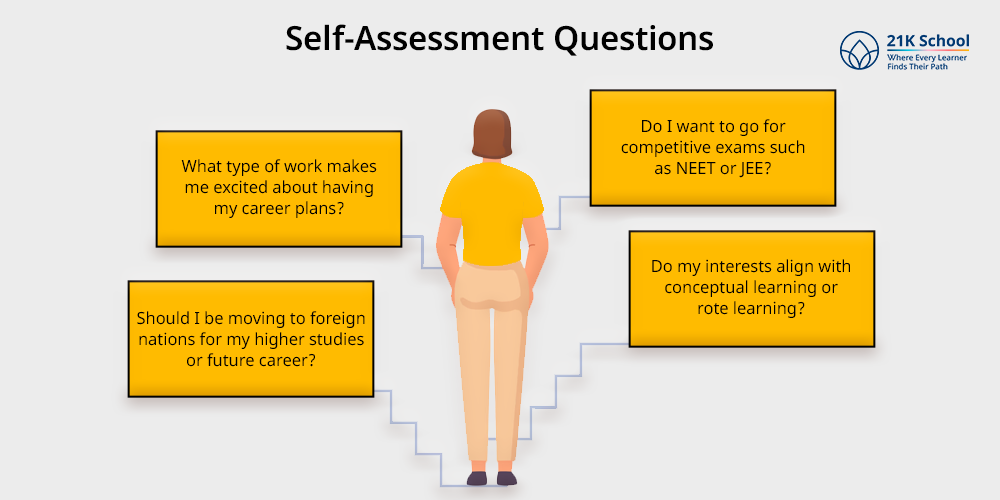
Asking some questions prior to moving on to other variables for considering one board out of CBSE or state is crucial. Here are these:
- What type of work makes me excited about having my career plans?
- Do I want to go for competitive exams such as NEET or JEE?
- Should I be moving to foreign nations for my higher studies or future career?
- Do my interests align with conceptual learning or rote learning?
2. Family Considerations
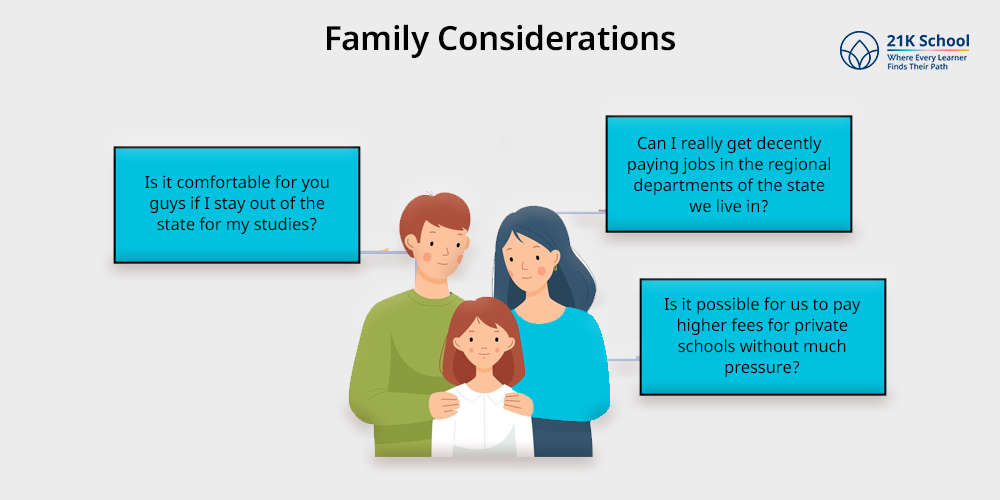
The next discussion you will have with your parents and find solutions to mould their views and your wants into one. Ask them:
- Is it comfortable for you guys if I stay out of the state for my studies?
- Can I really get decently paying jobs in the regional departments of the state we live in?
- Is it possible for us to pay higher fees for private schools without much pressure, if I took CBSE board as preference?
3. School Quality vs Board Type
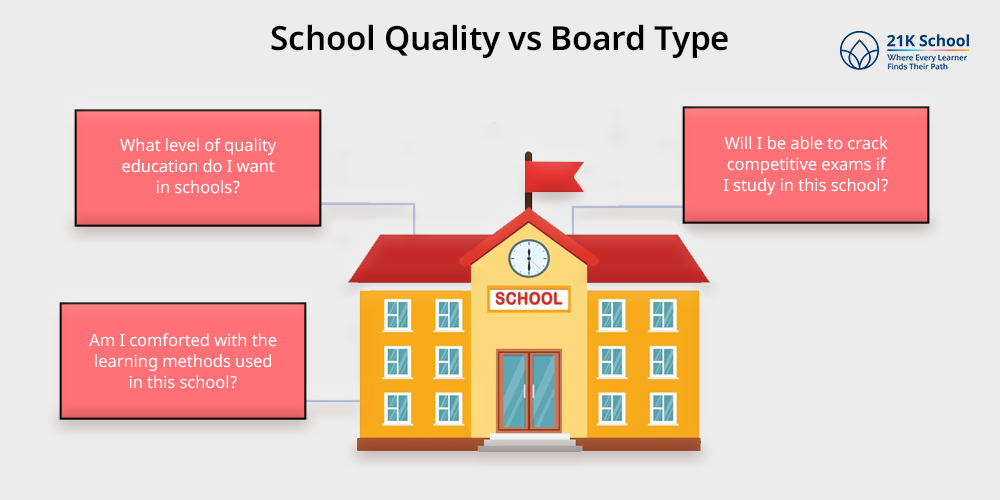
Sometimes children in haste only consider the board type and forget about the quality of education affected due to less popular or lower resources in schools. Consider putting questions like:
- What level of quality education do I want in schools?
- Will I be able to crack competitive exams if I study in this school?
- Am I comforted with the learning methods used in this school?
Concluding Comments
Choosing any of the CBSE or state boards after 10th class is confusing and equally a responsible decision to be made. Both the CBSE and state boards have their own rulebooks of career success and better future prospects.
When CBSE gives the liberty to you to go for higher studies even in international schools and colleges with conceptual depth of knowledge, state boards are centred on offering cultural knowledge so that we stay grounded to our diversity.
By having enough discussions and varied considerations, you can choose what fits with your financial position, future outlook, and personal choices.

